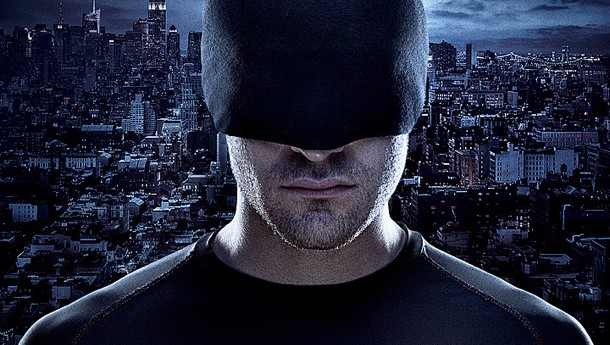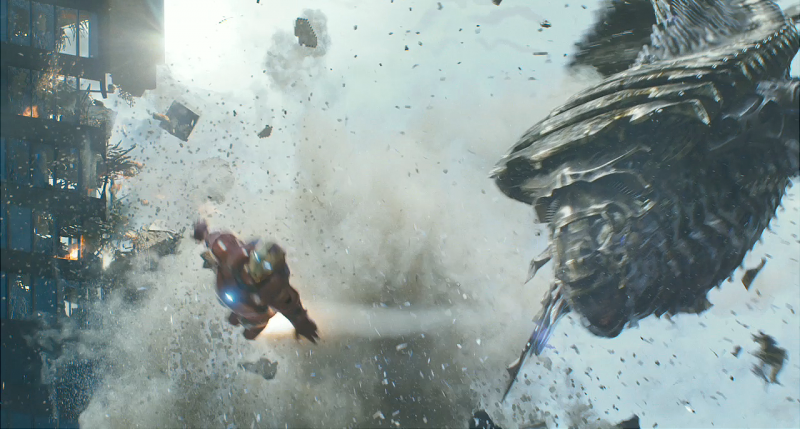Our extra-large special edition is here. Subscribe today and receive the 25% longer issue at no extra cost!
Gaming Needs Some Of That 'Daredevil' Magic

If you’re looking for a piece lamenting a lack of a Daredevil solo game, I must disappoint you. This isn’t that (though if you’re here to rally for such a thing, I am with you).
This weekend, I began watching Netflix’s excellent Daredevil series. I’m not all the way through yet (just four episodes), but it’s already struck me as something quite special.
Daredevil isn’t your typical superhero, nor is his tale routine. In this well-paced origin story, attorney Matt Murdock isn’t saving the world. He isn’t fighting World War II against the Red Skull. He isn’t saving the nine realms from Loki. He isn’t even defending all of Gotham against an ages-old league hellbent on destroying it.
He’s simply trying to make his neighborhood a better place. That’s right. Daredevil isn’t even focused on the whole of Manhattan. He just wants his childhood home of Hell’s Kitchen (not nearly the terrifying place it was when the character was first introduced) to be a safer home for its residents.
In the first episode, that juxtaposition is cleverly put to viewers. As Matt and his partner, Foggy Nelson, scout out office space for their meager law firm, the Realtor mentions “the incident.”
If you aren’t up on the Marvel Cinematic Universe, that reference might slide past you. In other tie-in programs, it’s called something else: The Battle of New York (depicted in The Avengers).

This careful phrasing gives us our first look at the aftermath of those events from the perspective of New York’s residents. Marvel is typically deft in handling the aftermath of world-altering events (ABC's Agents of S.H.I.E.L.D. television show deals with some of the mop-up following major cinematic events), but this is the first time it makes the enormous battle feel authentic in terms of human cost.
The show succeeds despite its narrow focus. It makes small conflicts seem crucial and minor victories feel as colossal as the epic climax to Marvel’s first blockbuster team-up.
As I lay in bed last night, I asked myself what might be gaming’s analog to this type of tale. I found the medium wanting.
When we are cast as heroes, we are saving the world. We’re winning contemporary military conflicts, slaying dragons, closing rifts to demon dimensions, ending galactic wars, and quite literally holding mankind back from the brink of extinction over and over and over again.
We are never winning small victories for the betterment of others. At least not when we are unequivocally the "good guy" in the tale.
That’s not to say that some developers haven’t tackled these kinds of stories. However, they are never about the kinds of people we’d hold up as heroes.

Rockstar has been particularly adept at sculpting compelling drama from relatively minor happenings. Grand Theft Auto and Red Dead Redemption are character-driven experiences, but the stakes aren’t huge.
If Nikko Bellic or John Marston simply did not exist in their stories, the world would keep spinning. Humanity would be undeterred. Liberty City and the old West flow around these characters as if they are the tiniest pebbles in a raging river, and still we care. We see their stories through to the end, because they are compelling despite the unimportance to the world around them.
These aren’t admirable characters, though. At best they are morally ambiguous. At worst, they are simply bad people.
Naughty Dog's The Last of Us comes close to fitting the bill, however despite the personal approach to storycraft, it too hinges on humanity's survival. From the moment Ellie is introduced, the game becomes a quest to save those living in fear from a world overrun by violent infected monsters.
It’s time for gaming to tell a story about a hero who isn’t holding back the apocalypse. If Netflix can bank on a show about less than one square mile of real estate filled with mobs, muggings, white collar crime, and interesting characters with varying motivations, games can take that risk.
Give us a hero with solid motivation, an interesting back story, a compelling supporting cast, and a mission that feels enormous because we care about the characters it impacts, and we’ll be there with wallets out. I’m ready to stop saving the world and start helping the people closest to me.

Get the Game Informer Print Edition!
Explore your favorite games in premium print format, delivered to your door.
- 10 issues per year
- Only $4.80 per issue
- Full digital magazine archive access
- Since 1991









